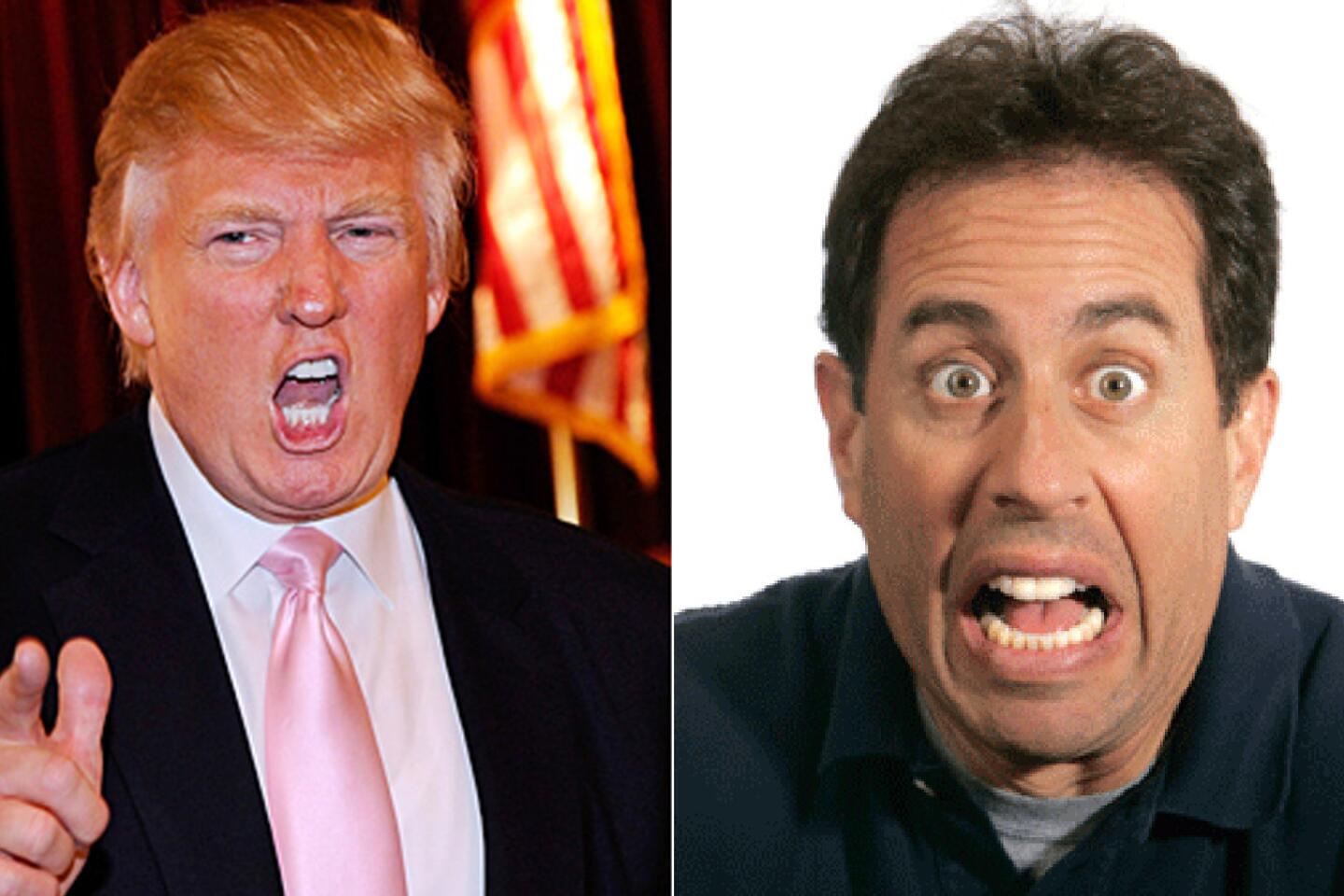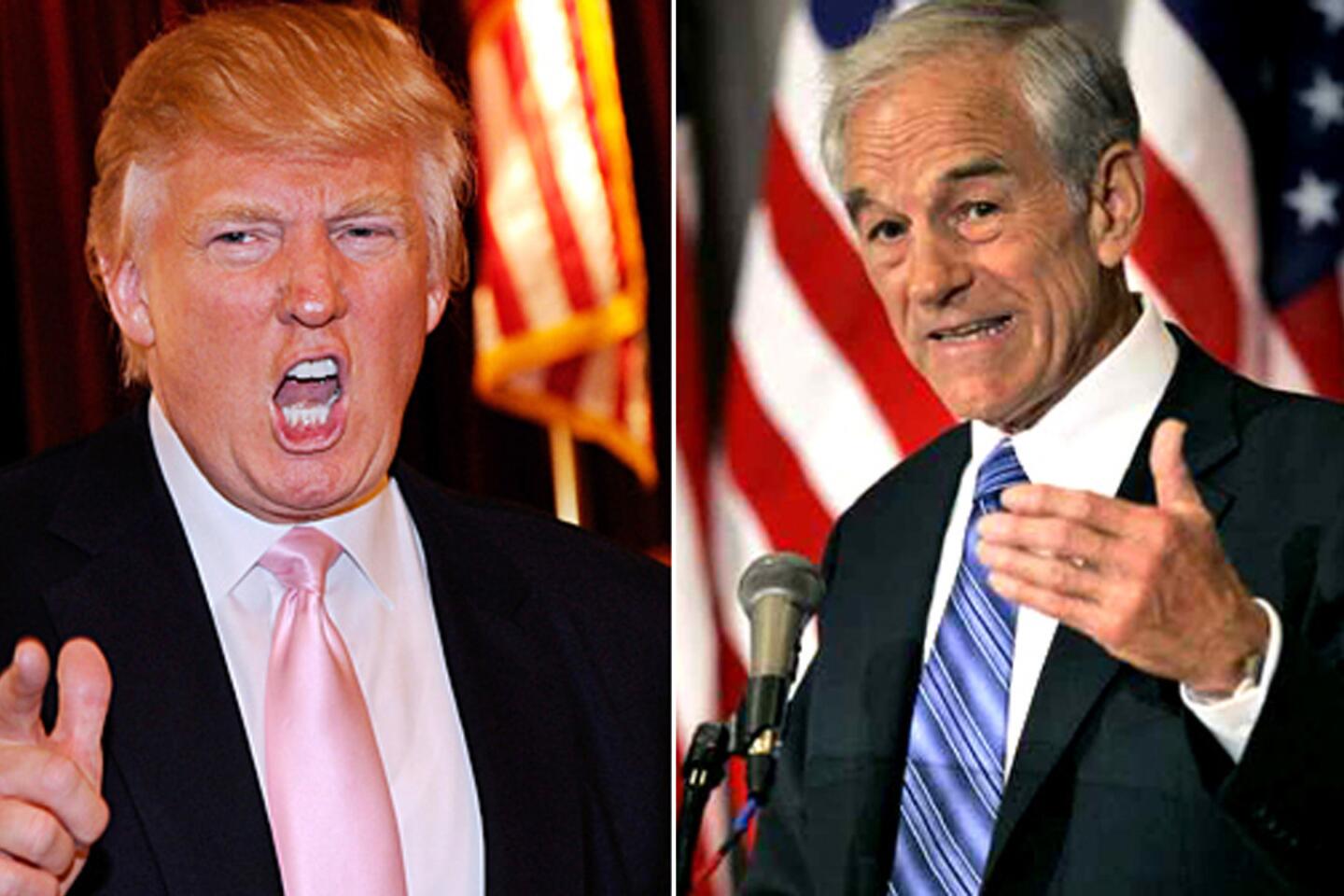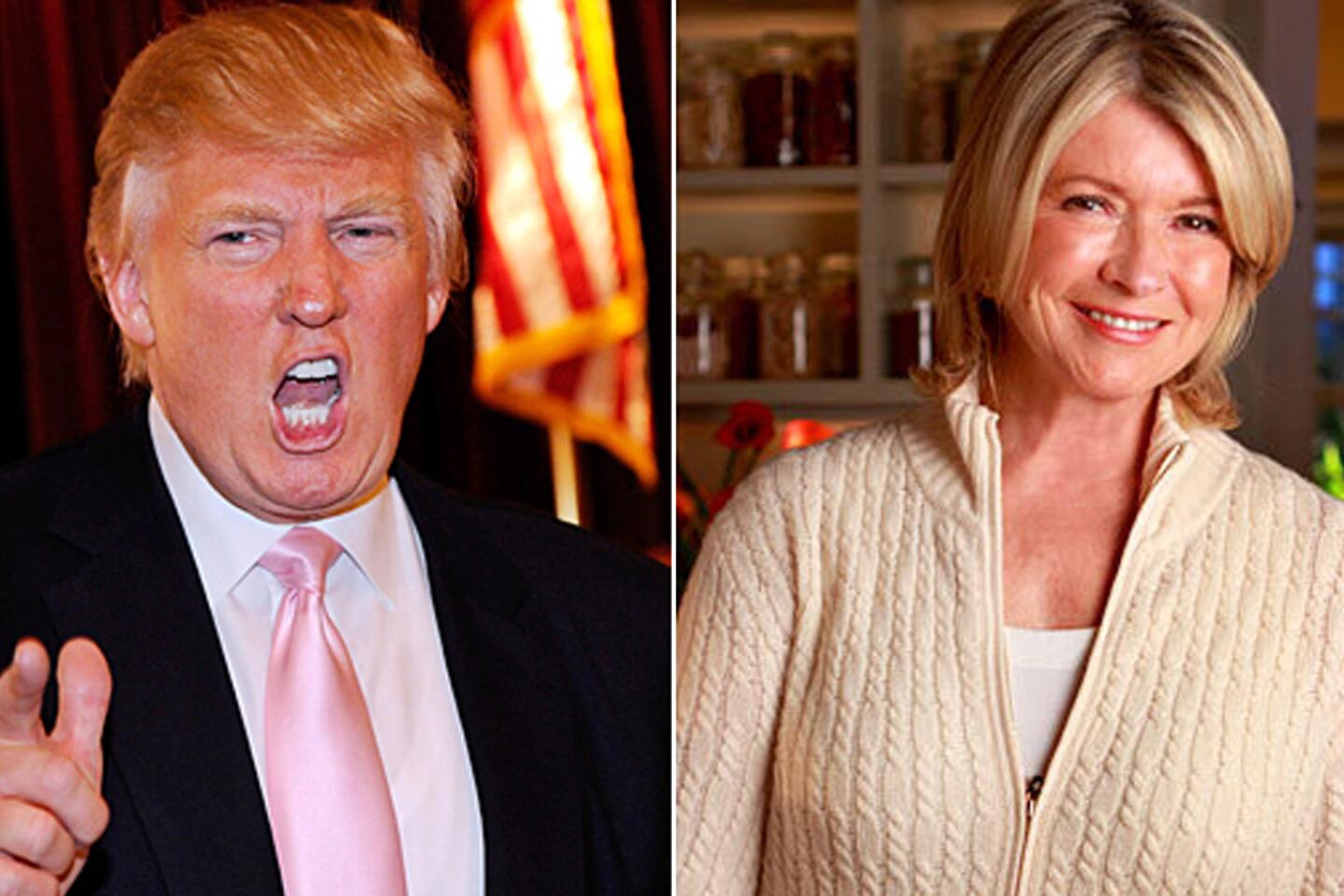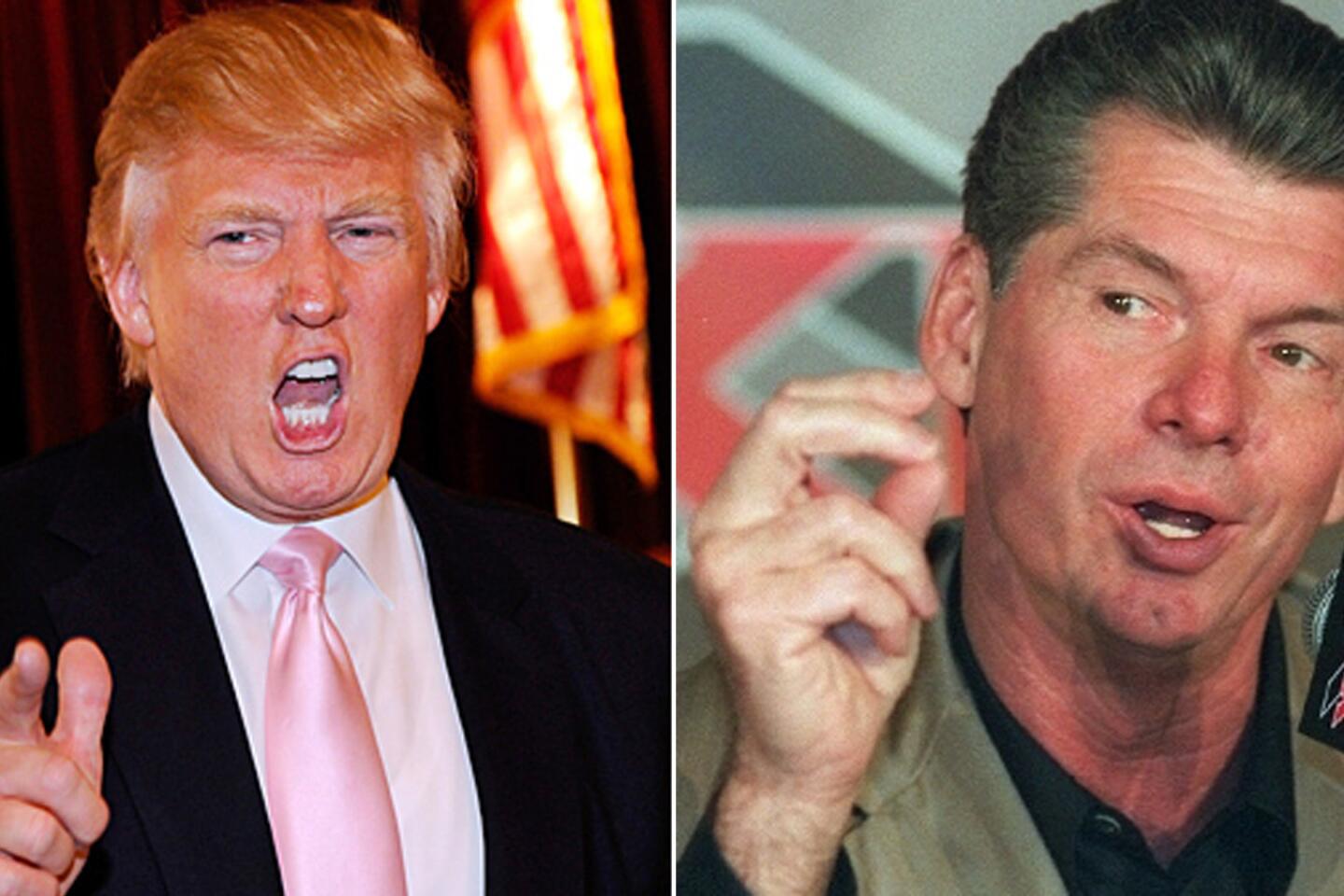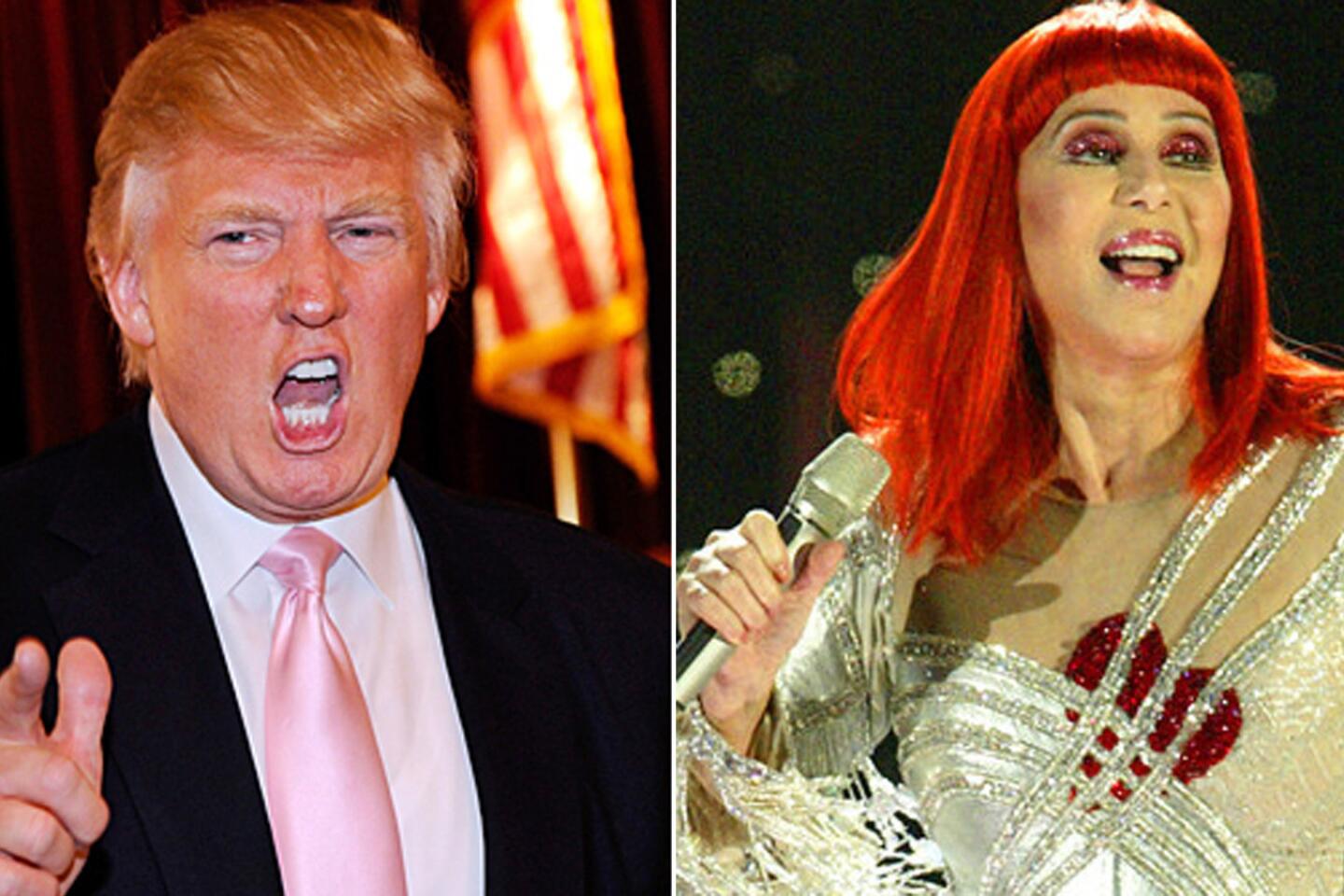Funny or Die ‘Donald Trump’ filmmakers talk about making the viral parody with Johnny Depp
- Share via
If you think you’ve been exposed to a lot of Donald Trump lately, try being Joe Randazzo.
Randazzo, the former editor of the Onion, spent months last year immersed in the collected clips and writings of the GOP front-runner, turning his research into a 1980s-set parody script for the website Funny or Die.
“I was ready,” he recalled dryly, “to jump off a bridge.”
See more of Entertainment’s top stories on Facebook >>
That work paid dividends for the rest of us, however. Americans went to bed Tuesday night after watching cable-news coverage of Trump’s win at the New Hampshire primary. They awakened Wednesday morning to a different kind of entertainment.
Funny or Die offered what one might call a February surprise, dropping the parody film “Donald Trump’s The Art of the Deal: The Movie,” with Johnny Depp as the titular hero, on an unsuspecting Web public. The release quickly prompted a viral frenzy on social media, though no response — yet — from one @realdonaldtrump.
“A lot of what we put in a few months ago, we were shaking heads thinking Donald Trump wouldn’t actually say something like this,” said Jeremy Konner, the creator of the popular series “Drunk History” who directed the Trump film. “And since then he’s said all these things out loud.”
If you haven’t watched it yet, the 50-minute film is designed to look like a lost movie-of-the-week from the 1980s (it was newly recovered after being wrestled away from a woman at a garage sale by Ron Howard, we learn at the outset). Trump himself is presented as the film’s director, writer, producer and — of course — star.
“Art of the Deal” is structured around the fake principles from Trump’s eponymous 1987 bestseller — “The art of buying a hotel from the Hilton family,” “The art of marrying a gorgeous immigrant” — and follows the tycoon as he narrates a number of actual anecdotes from the book to a young boy.
Trump is seeking to buy the Taj Mahal casino from Merv Griffin (Patton Oswalt), which gives him a chance to walk through various moments of his life, both the real (his lawsuit against the NFL or the purchase of air rights in midtown Manhattan) and the fictional. “Mr. Gorbachev, tear down this wall — I can build you a much nicer one,” as one phone-call quip has it.
Trump peppers his speech with trademark superlatives like “sensational” and his end-of-sentence uptalked “OK?” He also is often articulating his beliefs. “Everyone, no matter their race, age, creed color [has the right to] be priced out of their own neighborhood.”
At various points, the mogul, as director, also relieves several kids of their Fred Savage-esque listening duties when he realizes they come from minority backgrounds. He eventually settles on Jacob Tremblay, who listens gamely, not commenting on whether the experience of being trapped in a room with Trump is better or worse than his other recent appearance of on-screen claustrophobia.
Eighties touches abound, from the keyboards-heavy sounds design to an Alf cameo to a “Dynasty”-inspired montage. But though it’s set in the Reagan era, filmmakers manage to get in a potential Trump presidency, via an ‘80s-flavored time-travel device. (Upon being given the nuclear codes: “You can demolish a lot of buildings with that”). Also, Carmen Electra is apparently a key Cabinet member.
“We kept having to go back and revise because Trump just kept saying crazier stuff,” Randazzo said.
Indeed, when the movie was shot in the fall, no one working on the production had any idea how much further Trump’s campaign could go. It’s obviously still going strong, which was good for the film, but led to a problem: Truth was becoming more satiric than fiction.
“When we set out to make this film, this seemed like a much more scathing attack,” said Konner.
What has come out of [Trump’s] mouth since [inception of this film] is a thousand times more insane than anything we might have fictionalized.
— Director Jeremy Konner
Randazzo said he saw the antecedents of many of Trump’s current postures by delving into the book--”the seedlings,” he calls it, of what he believes is the candidate’s way of highlighting triumphs and spinning losses.
The larger for a Trump parody was conceived by Funny or Die editor in chief Owen Burke, one of the film’s executive producers. The site was founded by Will Ferrell, Adam McKay and Judd Apatow, with McKay himself in a humor-activist realm at the moment with his Wall Street black comedy “The Big Short” nominated for Oscar’s best picture.
Everyone on the movie felt that same spirit of activism, filmmakers said. “We talked a lot about how much he changed the campaign, but also how he exposed the whole thing as a carnival,” Randazzo said.
Still, he and Konner say they have only modest hopes, if that, for how much they can affect the race.
“I don’t think we can really sway anyone — the people that love him won’t have their minds changed by something like this, and the people that hate him already hate him,” said Randazzo.
Added Konner: “This is not propaganda — it’s entertainment and comedy, first and foremost. But the reality is that all the people involved in making this think Trump is a clown, a comical character who should not be president of the United States. That point of view is inescapable in the art we make.”
Which raises another question: Given Trumps’ continuing ascent in pursuit of that office, might there be a possibility of a sequel?
“I don’t think any of us want to put ourselves through this again,” Randazzo said.
ALSO:
Eagles’ Glenn Frey to be saluted by bandmates at Grammy Awards
Adele announces surprise Los Angeles show at the Wiltern on Friday
Is awards season having a Donald Trump moment?
Watch the first full trailer for ‘Fuller House’ and weep at the inexorable march of time
More to Read
Only good movies
Get the Indie Focus newsletter, Mark Olsen's weekly guide to the world of cinema.
You may occasionally receive promotional content from the Los Angeles Times.
